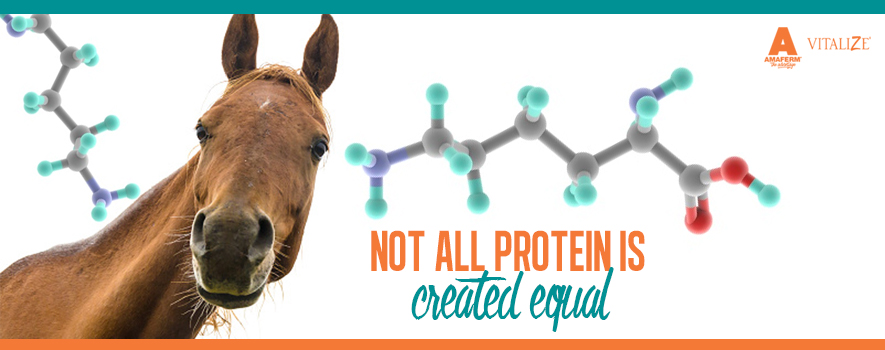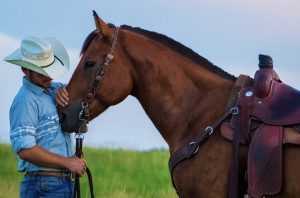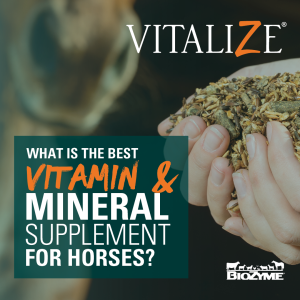
Did you know “protein” is derived from the Greek word “proteos”, meaning of first or most importance? In fact, nearly 15% of a horse’s body weight is made up of protein. Protein provides amino acids, which are essential to developing healthy muscles, hooves, skin, coat, and mane and tail. While there are many protein sources available, it is important to understand that not all sources are created equal. For the horse, a natural, forage-based protein source is the best choice. But even within this category, each of available source has a different amino acid profile and digestibility that should be considered. The amino acid profile, or ratio of amino acids provided by the protein source, is important because there are several amino acids that are considered essential to the horse. These essential amino acids must be provided in the diet as they cannot be synthesized from within the body. Arguably the most important essential amino acid to the horse is lysine. Lysine is often lacking in horse diets, especially in growing and lactating horses, which have a higher requirement. In addition to amino acid profile, the digestibility of the source is important because it determines how much of these amino acids will be able to be absorbed in the small intestine and available to the animal.
Lysine is the first limiting essential amino acid, meaning that if there is not enough lysine available, the horse will not be able to use any of the other amino acids in the diet. In total, there are 10 essential amino acids required in the equine diet. In addition to lysine, these include threonine, methionine, arginine, histidine, phenylalanine, tryptophan, valine, leucine, and isoleucine. Because of lysine’s importance in the diet, basic protein quality is often assessed based on lysine content and you will often see a minimum percentage of lysine listed in a feed or supplement’s guaranteed analysis. Taking lysine and other essential amino acid content into account, soybean meal can be considered as one of the best protein sources for the horse. Soybean meal also has a high digestibility, which was recently demonstrated in a study at Texas A&M University. This study showed that the total tract digestibility of soybean meal was greater than 95%.
To help meet the protein needs of growing foals, broodmares, and performance horses, Vitalize’s Equine Protein Pellet provide 25% natural protein, which is provided by soybean meal and ground extruded whole soybeans. Because many horses that eat high-quality forage do not need additional protein supplementation to meet their protein requirement, we recommend doing a forage or hay analysis to determine the nutrient content of your horse’s diet before supplying additional protein. However, it is important to keep in mind that growing horses and foals, pregnant and lactating mares, performance horses in intense work, and horses recovering from certain injuries and illnesses need much more protein in their diet than a horse doing little or no work. Check the NRC’s latest nutrient requirements for horses at https://www.nap.edu/read/11653/chapter/1 or contact one of our representatives for assistance assessing your horse’s dietary needs and determining which Vitalize products will help your horse reach its greatest potential.

